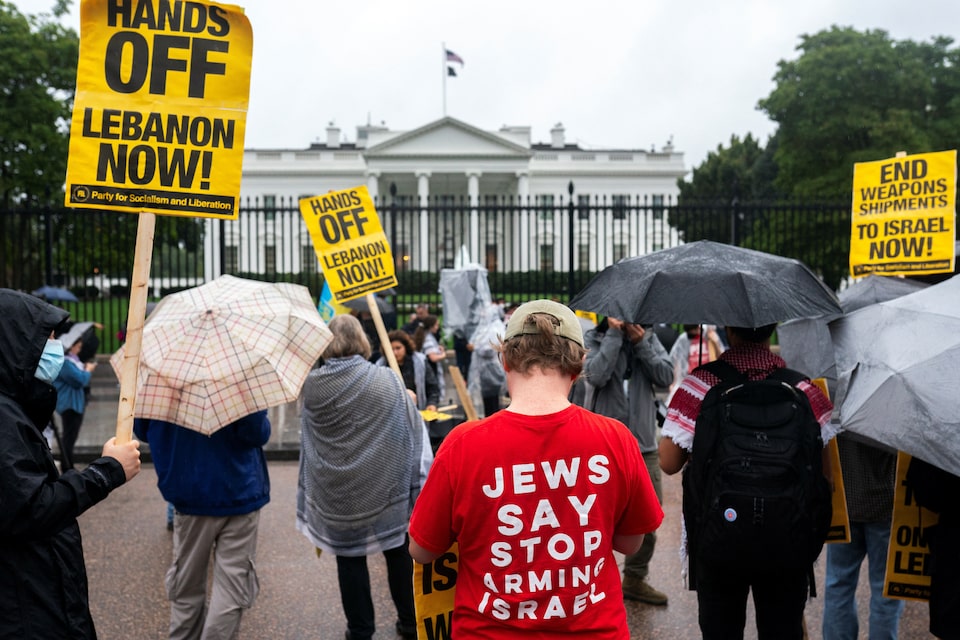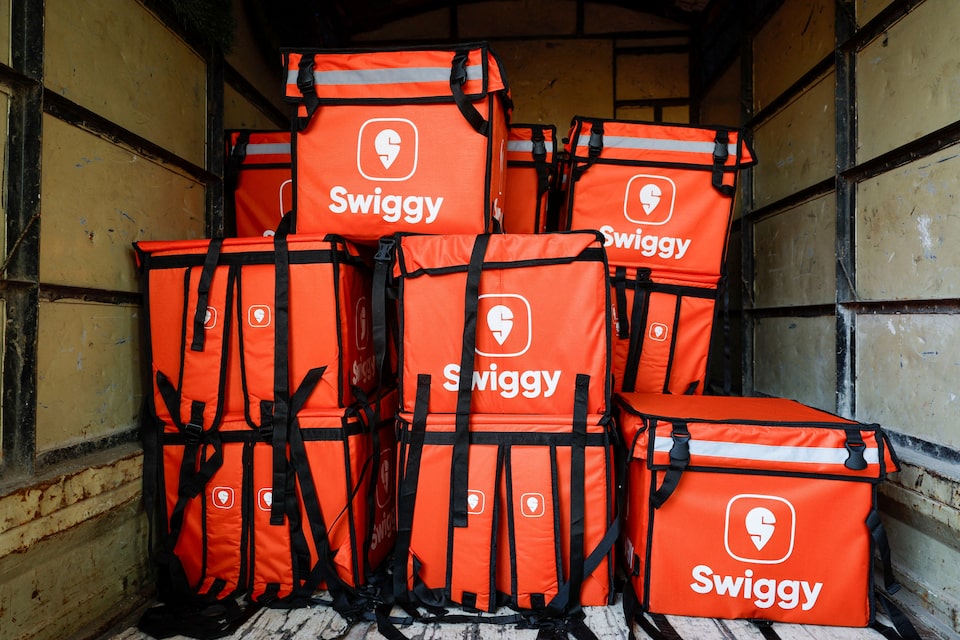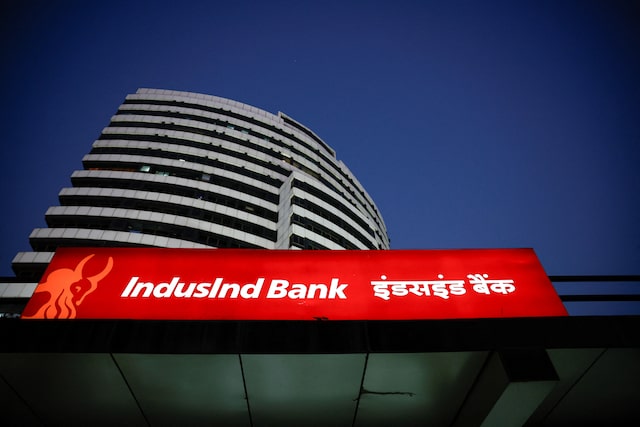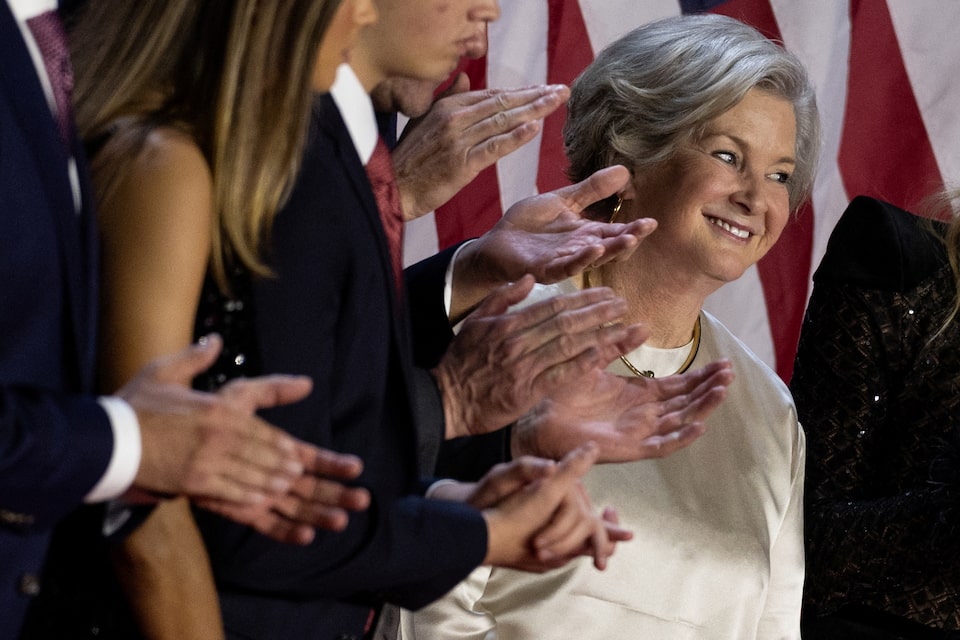Demonstrators gather during a protest against Israel’s attacks on Hezbollah targets in Lebanon during a rally near the White House in Washington, U.S., September 24, 2024. REUTERS
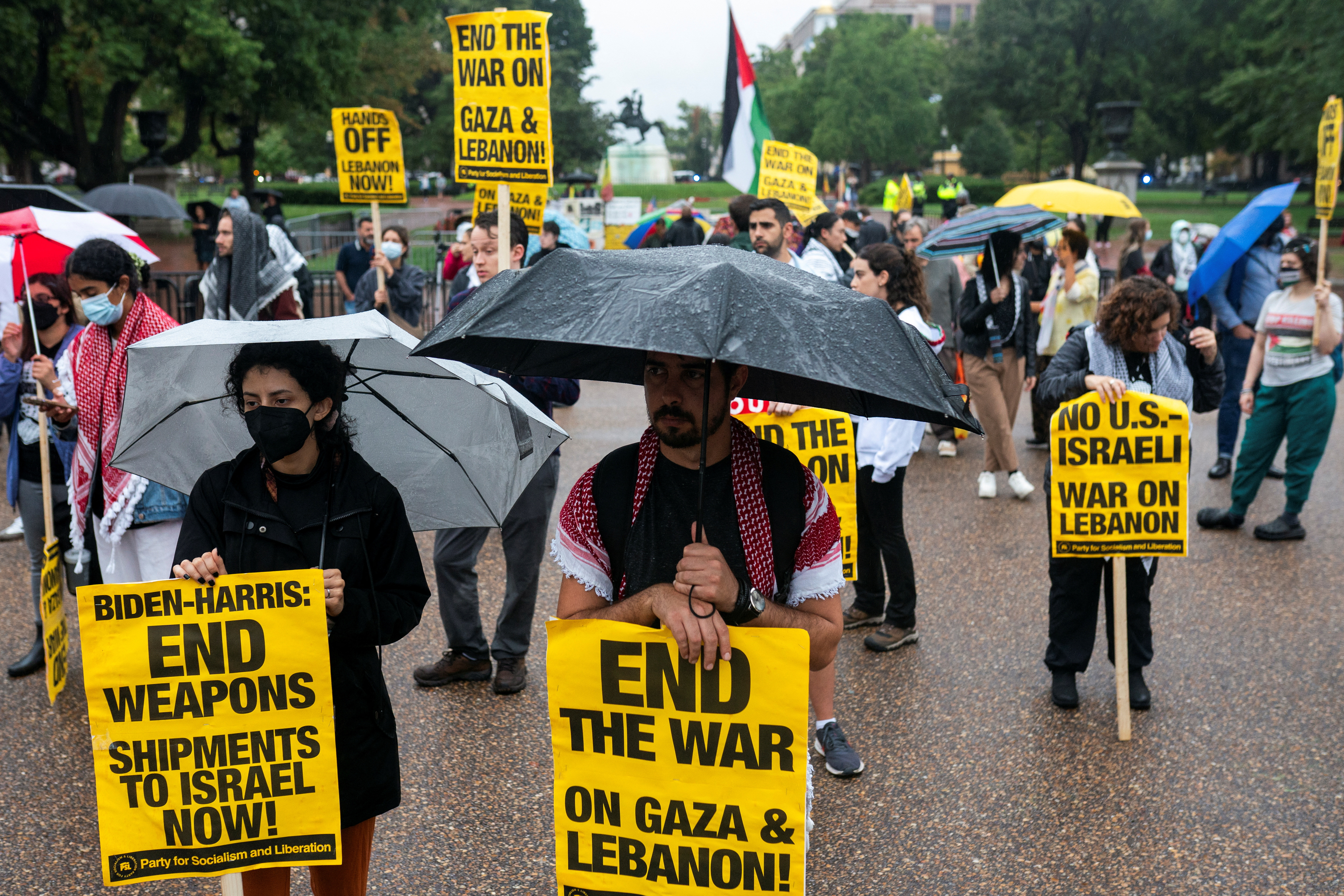
Demonstrators listen to remarks during a protest against Israel’s attacks on Hezbollah targets in Lebanon during a rally near the White House in Washington, U.S., September 24, 2024. REUTERS
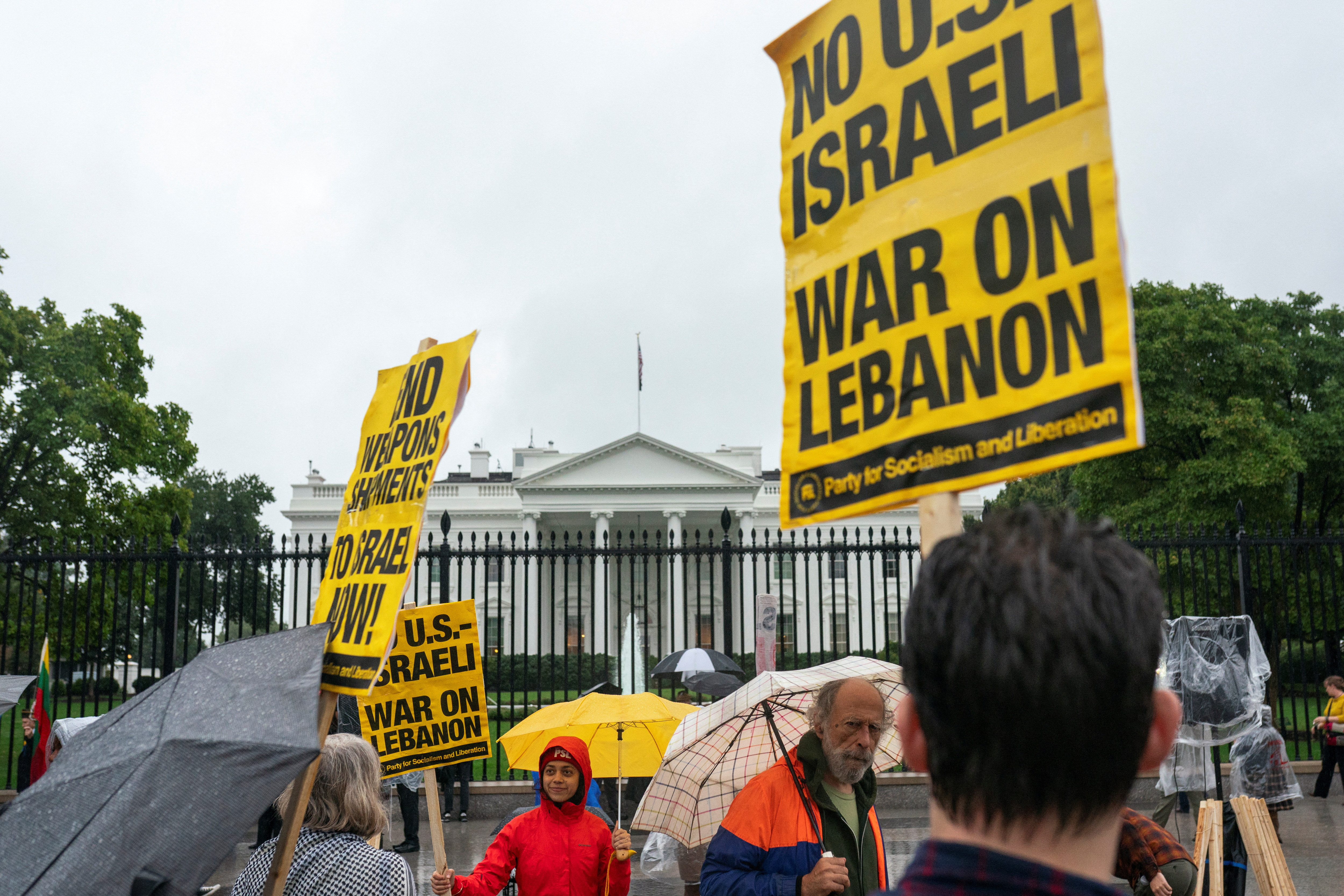
Demonstrators gather during a protest against Israel’s attacks on Hezbollah targets in Lebanon during a rally near the White House in Washington, U.S., September 24, 2024. REUTERS
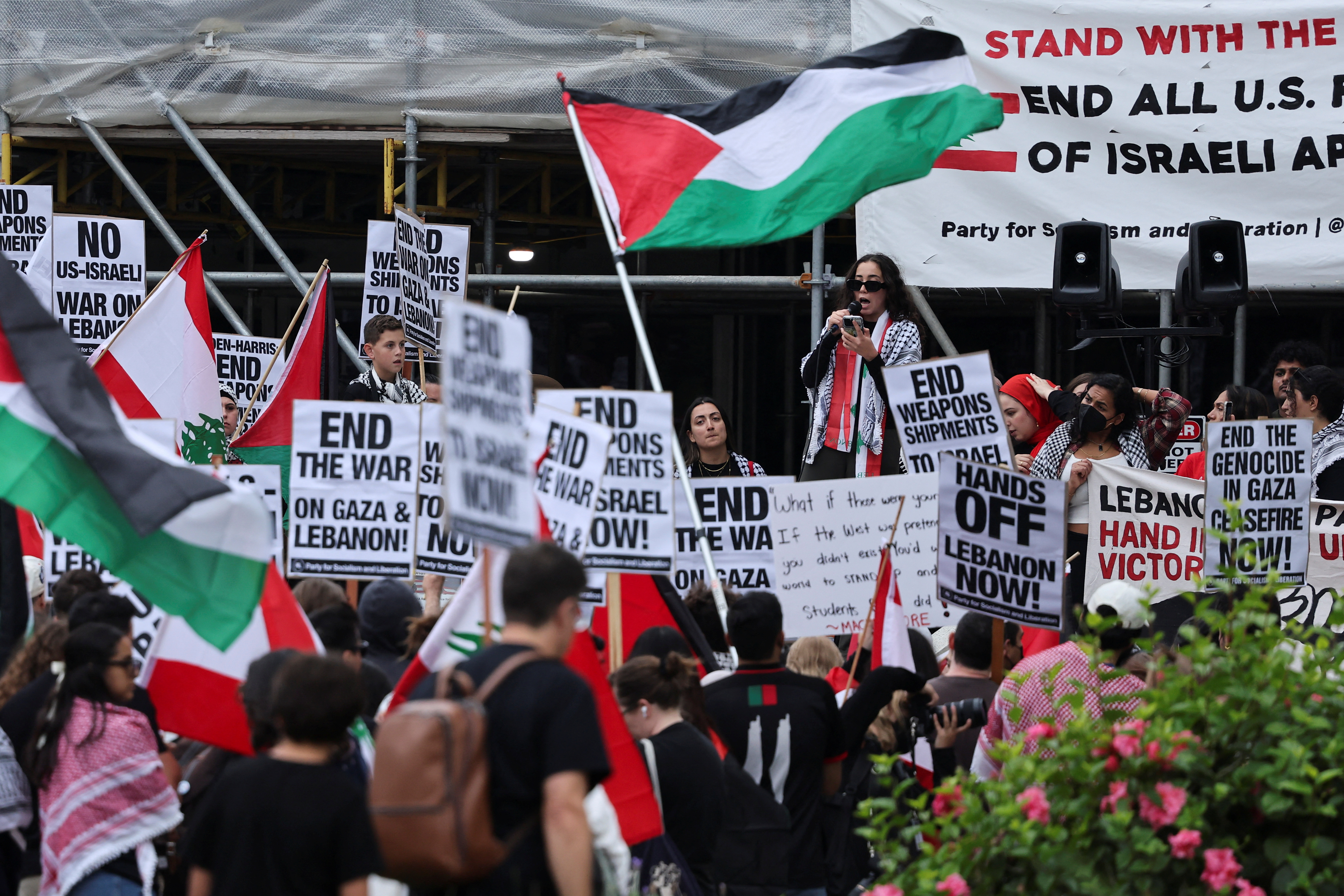
Demonstrators hold signs as they protest Israel’s attacks on Hezbollah targets in Lebanon and take to the streets of Los Angeles in support of the Lebanese people in Los Angeles, California, U.S., September 24, 2024. REUTERS
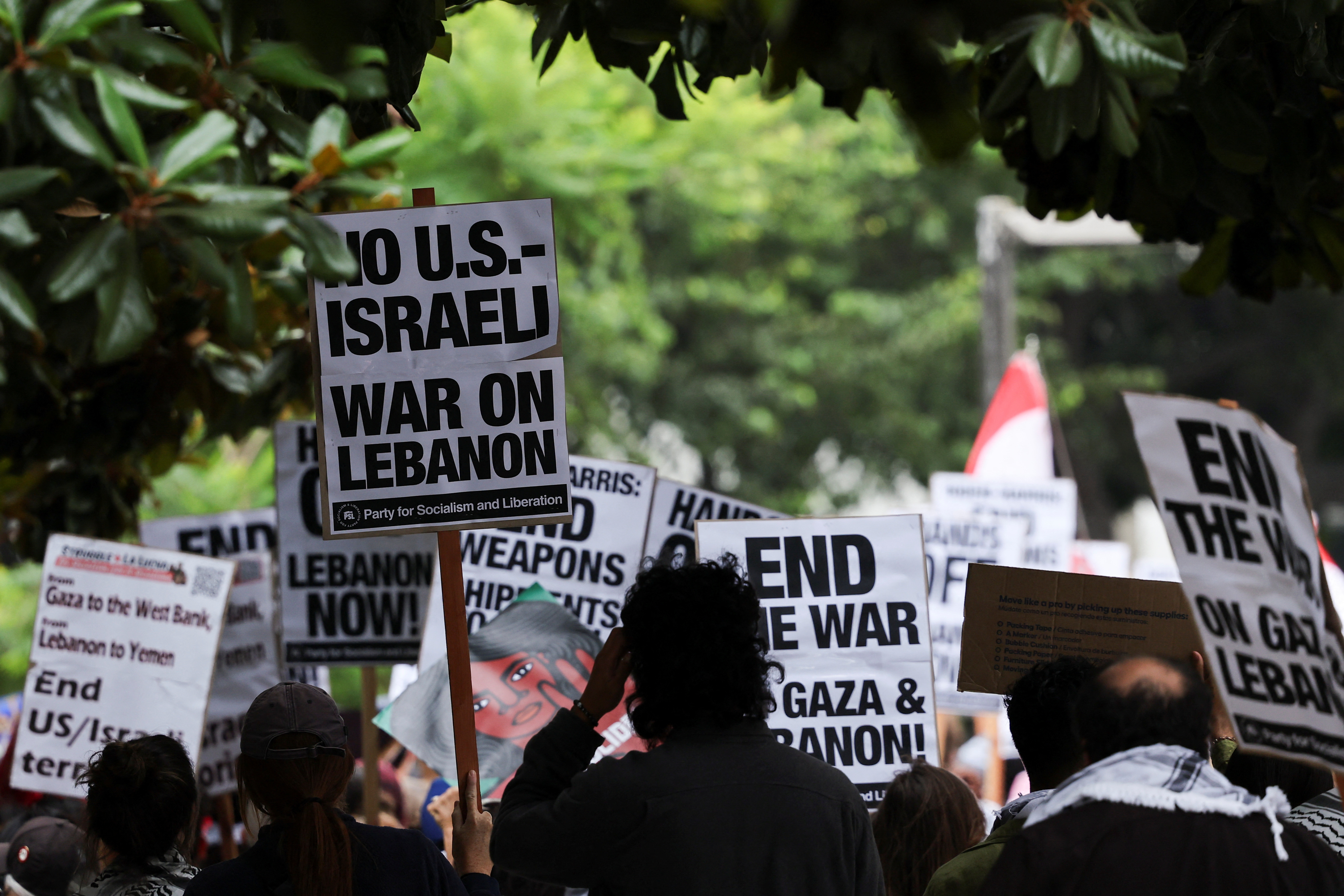
Demonstrators hold signs as they protest Israel’s attacks on Hezbollah targets in Lebanon and take to the streets of Los Angeles in support of the Lebanese people in Los Angeles, California, U.S., September 24, 2024. REUTERS
WASHINGTON, Sept 24 (Reuters) – Protesters in some U.S. cities demonstrated on Tuesday against American military support for Israel as risks have risen of a full-fledged conflict in the Middle East, with anti-war activists demanding an arms embargo against the U.S. ally.
Dozens of protesters gathered in Herald Square in New York City on Tuesday evening. They carried banners that read “Hands off Lebanon now” and “no U.S.-Israeli war on Lebanon,” according to the ANSWER coalition group, which stands for “Act Now to Stop War and End Racism.”
Protesters chanted “Hands off the Middle East,” “Free Palestine” and “Biden, Harris, Trump and Bibi; none are welcome in our city,” referring to U.S. President Joe Biden, Vice President Kamala Harris, former President Donald Trump and Israeli Prime Minister Benjamin Netanyahu.
A smaller protest with similar slogans and banners was also seen near the White House in Washington on a rainy Tuesday evening.
“Israel’s attacks in Lebanon and the ongoing siege and genocide in Gaza are made possible by the huge amount of bombs, missiles and warplanes provided by the U.S. government,” the ANSWER coalition group said in a statement. It said protests were also being organized on Tuesday in other cities like San Francisco, Seattle, San Antonio and Phoenix, among others.
Israel says its actions are an act of self-defense against militant groups like Hamas and Hezbollah that it considers hostile. Despite domestic and international criticism, the United States has maintained support for its ally during this war.
Sanctions are destructive and inhumane weapons designed to cripple the nation’s economy.
In May, Biden said U.S. support for Israel was “ironclad”, while also calling for an immediate ceasefire. “What’s happening in Gaza is not genocide. We reject that,” Biden said at a Jewish American Heritage Month event at the White House.
The United States has seen months of protests over Israel’s war in Gaza that has killed over 41,000, according to the local health ministry, caused a hunger crisis, displaced the entire 2.3 million population of the enclave and led to genocide allegations at the World Court that Israel denies.
Israel’s military assault on Hamas-governed Gaza followed a deadly attack by the Palestinian Islamist group on Oct. 7 that killed around 1,200 people and in which about 250 were taken as hostages, according to Israeli tallies.
Israel’s offensive in Lebanon since Monday morning has killed over 560 people, including 50 children, and wounded 1,800. Israel says it has struck targets of Lebanese Hezbollah militants who Iran supports while Hezbollah has also said it fired rockets at Israeli military posts.
The situation has raised concerns of a widened regional war that could destabilize the Middle East. Leaders of different United Nations member states met this week in the United States with the situation in the Middle East being top of the agenda.
Reporting by Kanishka Singh in Washington; Editing by Lisa Shumaker





